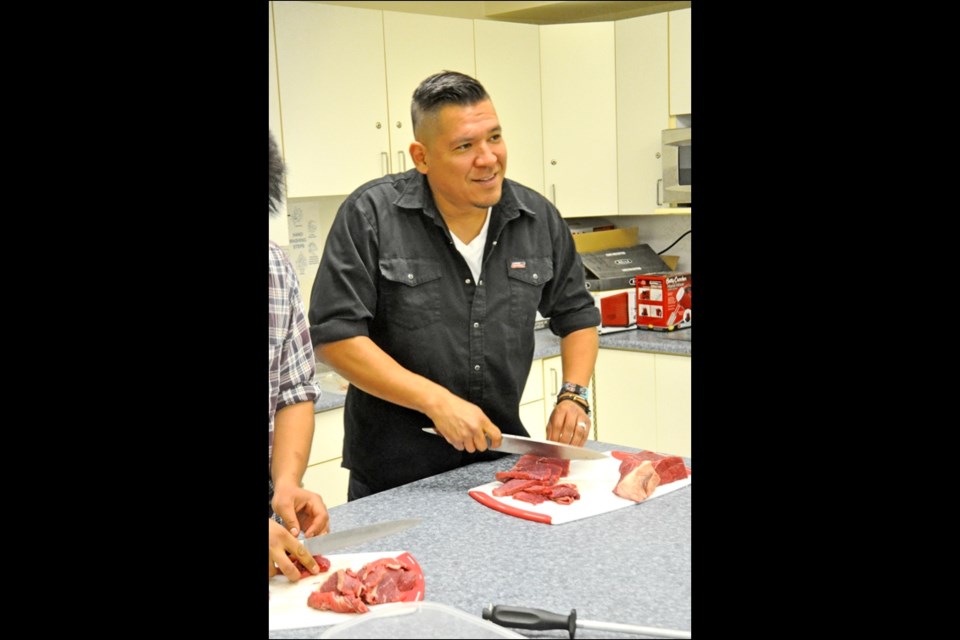Students at Sakewew High School were shown some tricks by a guest speaker about aboriginal cuisine.
The guest was Rich Francis, chef/owner of Aboriginal Culinary Concepts, who plans to open a new restaurant called Seventh Fire in Saskatoon later this year.
His ideas on aboriginal cuisine have literally caught fire. A member of Tetlit Gwich’in and Tuscarora Nations and a graduate of Stratford Chef School, Francis made it to the finals of the TV show Top Chef Canada and has carved a career in the restaurant industry.
But lately, he has been spreading a message about his own food ideas. Francis has been doing presentations and workshops around the country on “cooking and reconciliation.”
At those workshops, including the one at Sakewew, he shared his ideas on “modern aboriginal cuisine.”
While he uses the word “modern” to describe the cuisine, it really takes a look at First Nation people as a whole, and their entire experience, including cultural genocide and truth and reconciliation.
“More than food, we look at the culture, and everything we’ve been through,” said Francis.
“We look at everything, and try to take something positive out of traditional foods today through a pre-colonial lens, creatively-speaking. And we try to move forward from there.”
It means getting back to the basics of what used to be staples of indigenous foods. For Francis, it doesn’t include bannock, or a number of other things introduced to aboriginal diets over the last several generations. He points out diabetes and obesity has been among indigenous people for only about 80 years,
While bannock is closely identified with aboriginal people, Francis won’t use it and won’t cook it, saying it was never “us” to begin with.
He explains flour, sugar and lard were never “indigenous to Turtle Island,” the name used by indigenous people to describe North America.
“That’s the whole basis of this initiative, to reconnect from our source, where we come from,” said Francis.
But it’s more than about healthy eating for Francis; he feels a cultural responsibility as well.
“I really want people to get back to the table. I really want our families to get back to the table and get down to simple cooking.”
At the workshop Wednesday afternoon, students from Sakewew’s food studies class and also their life-transitions class took part, as did a few other students who wanted in on the action.
The food they prepared was “bison tacos,” in which traditional bison meat was included along with other fresh items, such as pineapple, papaya and other fruits and vegetables. It was an alternative way for Francis to share his ideas about food preparation.
“It’s something simple, something fun, but again nothing came out of a bottle or a can,” said Francis.
His preference is relying on foods that could be grown in a garden, instead of relying on industry.
“You learn a few basic cooking techniques and you’re good to go,” he said.
Francis has a number of other projects in the works in 2017. He plans to publish a cookbook this year, and has a new TV series in the works as well. The restaurant in Saskatoon is slated to open this summer and Francis says it will be the first of its kind in Canada.
His hope is this is just the start of an “indigenous food revolution,” especially in the north, where he is from.
“I use food to send a message, and just kind of leave my mark, really,” said Francis.




